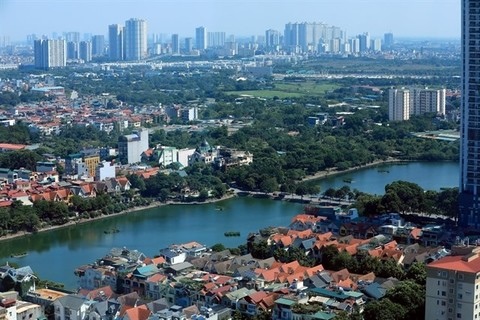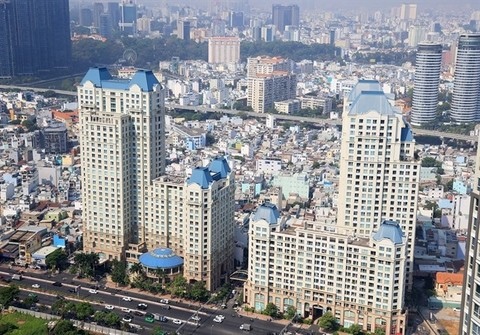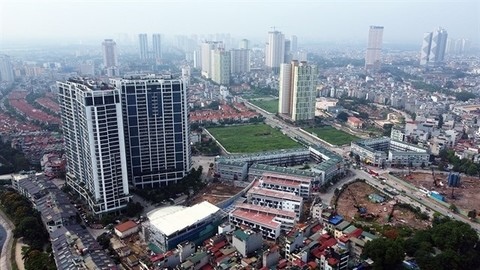BT projects put on hold
BT projects put on hold
The Ministry of Finance’s crackdown on giving public land to build-transfer investors has brought infrastructure development under the format to a standstill. Developers are awaiting new guidelines, while industry experts call for a review of the rules.
The recent proposal to end build-transfer (BT) infrastructure investments in exchange for public land have brought development under the format to a screeching halt. The Ministry of Finance recently ordered localities to stop using public assets to pay BT investors until a governmental decree on this issue is enacted.
Under the Law on Management and Use of Public Assets, payments in terms of land for BT investors are no longer allowed, but many localities have failed to comply. The plan is for projects to go on auction in the future.
Investors hit the brakes
A representative of Ho Chi Minh City Infrastructure Investment JSC (CII), which has projects built under the BT format, told VIR that this halt would not impact current projects, but would surely impact future undertakings.
“This step will not affect CII’s projects and business strategy at the moment, since all current projects are being done by way of investing in infrastructure systems and receiving land plots in return, but projects will be taken to auction in the future,” said the representative, who wished not to be named. He said that the halt would not discourage investors right now, but all BT activities had been stopped to await new guidelines from the Vietnamese government.
“We [investors] are all aware that the reason why the government wants to move from BT to the auction method is to make everything transparent, and this would be the most efficient method for choosing eligible and capable investors for projects,” he said.
He added that in the future, when the auction method is applied, auction identifications would have to be very clear and transparent. “If the government only cares about the highest price, then they will face many obstacles. The toughest of those would be that the government may not be able to choose the best-qualified investors. This would mean a long-term disadvantage for infrastructure development,” he said. “Investors right now are waiting and seeing how the new regulation will be applied. Nothing is being done before this issue is clarified.”
Meanwhile, a source from construction firm LICOGI 16 said that its major project, a 3,200-metre road and bridge section in District 8 of Ho Chi Minh City, was just about to be started when it was stopped due to the halt. Investors involved in this project are also awaiting more information before taking further steps in this project.
Two other investors, Hai Phat Invest and Van Phu Invest, are also worried, as they possess dozens of hectares of land which was returned as part of BT projects. According to Doan Hoa Thuan, general director of Hai Phat Invest, the company and its partners are reviewing all current projects. “Our current intention is to continue projects which have been permitted under the old format. Then we will push mergers and acquisitions methods to expand our land fund,” Thuan said.
Experts call for review
According to industry experts, in order to increase transparency in BT project implementation, it is necessary to review the regulations allowing investors to propose and formulate investment projects. Current rules give investors too much influence, they say, increasing the risk of losses for the government.
Former Deputy Minister of Natural Resources and Environment Dang Hung Vo said that the BT format itself was not a bad way to mobilise investment for infrastructure development. However, the current legal framework on BT projects remains unperfected, leading to obstacles in project management and implementation. “Despite the remaining concerns about the BT format, I have to say that this format is still one of the best way for infrastructure development. The problem is how to utilise it in the best manner,” Vo said.
Vo said that BT projects should be stopped altogether in developed areas. To increase transparency in investment projects, BT projects should only be allowed in some localities with weak budgets and a lack of infrastructure network.
“The main disadvantage of BT projects is the depletion of land resources,” Vo said. “Thus, it is necessary to develop a mechanism to determine the value of infrastructure works and the value of land paid to investors. Moreover, all public-private partnership (PPP) projects must be fully publicised and put under the supervision of local people, while relevant state agencies must fulfill their obligation to explain issues raised by the people,” he added.
Le Hoang Chau, chairman of the Ho Chi Minh City Real Estate Association, stressed that partnerships with the private sector for infrastructure investments help mobilise large sums of capital. Still, he proposed public and transparent auctions and a restriction on contractor appointments in the case of PPP and BT investments.
Chairman of the Ho Chi Minh City People’s Committee Nguyen Thanh Phong said that land sites in prime locations will be auctioned off to collect capital for infrastructure projects, even though investors want those sites in exchange for BT investments. Recently, BT infrastructure projects have been heavily criticised, most notably for a lack of transparency, leading to a high risk of corruption. Local authorities had to give up many land lots, including several hectares in prime locations, for private project developers, causing a lack of land for the city and concerns over wastefulness. Auditors and land management experts are skeptical about the efficiency and transparency of projects carried out under BT contracts, as many BT projects have suffered long delays and major problems.
BT refers to the practice of giving land to developers who pledge to build infrastructure. The project format was introduced to Vietnam in the early 1990s, when localities across the country lacked funds to develop infrastructure.














